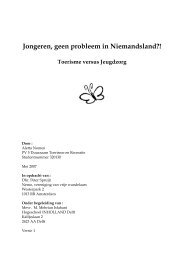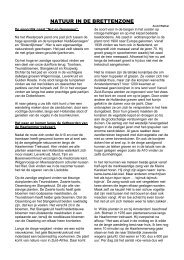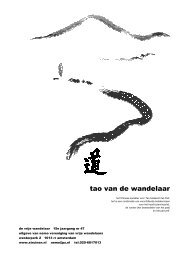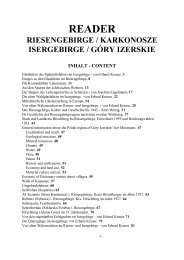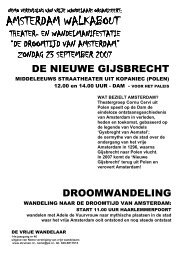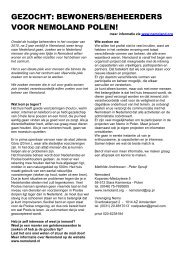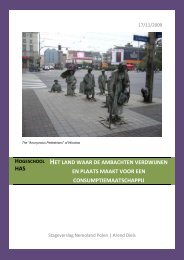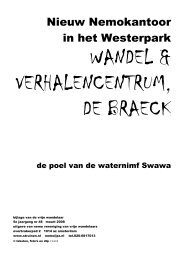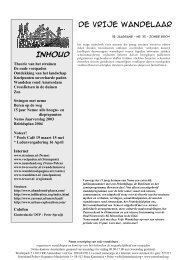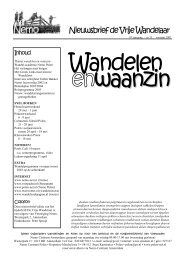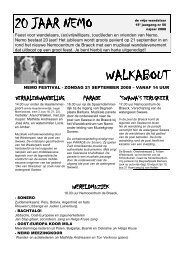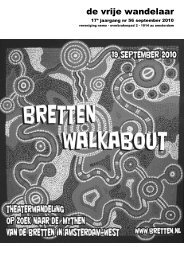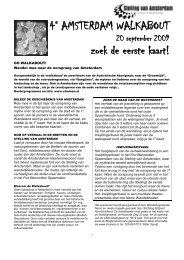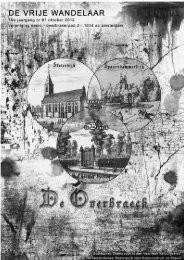Stara Kamienica - Nemo
Stara Kamienica - Nemo
Stara Kamienica - Nemo
You also want an ePaper? Increase the reach of your titles
YUMPU automatically turns print PDFs into web optimized ePapers that Google loves.
The primary beneficiaries are small farmers in Poland with farms around 7 hectares or less<br />
(there are more than a million such farms in Poland). Secondary beneficiaries are the tourists<br />
from Poland and abroad (mostly Dutch and German) who visit the farms and benefit from the<br />
organic food, the healthy surroundings and the culture of the countryside. Other beneficiaries<br />
are the people who buy organic foods from these farms through shops or other outlets. And<br />
the country as a whole benefits from the protection of the environment and the cultural values<br />
of the countryside.<br />
The recommendations that can be given from this chapter are:<br />
• It’s important for the people who run the model farm to be aware of all the rules that<br />
are applicable to the activities. Because there are a lot of rules and regulations it’s important<br />
to create alliances with the organization ECEAT whom can help them with asking for<br />
subsidies.<br />
• The model farmer his first focus has to be on home-made products and regional<br />
products for tourists, before producing really certified organic products. This will give some<br />
time for getting knowledge about production of locally produced organic products and how to<br />
implement all regulations (and if it’s possible to follow these regulations).<br />
• ECEAT Poland has been active in <strong>Stara</strong> <strong>Kamienica</strong>, but their popularity is decreasing.<br />
The small farmers started renting rooms to tourists already and aren’t encouraged to follow<br />
the ECEAT rules.<br />
• <strong>Nemo</strong> can encourage farmers to apply to ECEAT if they are ready for changing their<br />
farm to ecological farming. At this moment most of them are not ready for this, but later on<br />
ECEAT can give a good opportunity and for a more certain market, a brand for your products<br />
or farm is important.<br />
Chapter 4 Financial support for farmers in Poland<br />
4.1 Introduction<br />
Poland, after becoming a member of United Europe in 1st may 2004, received the possibility<br />
of using different ways of support. Among them the special pressure is put by the EU on<br />
supporting development of agriculture (rural development).<br />
In EU, programs work for a 7-year period of time, because the budget it set for that time. In<br />
2004 new member countries joined the Union in the middle of the programming period, and<br />
they have a 3 years shorter period implementation. Next program documents prepared by<br />
Ministry of Agriculture and Rural Development will be for the period of time 2007 – 2013.<br />
To compete with the other countries of the EU, Poland needs to develop its’ agricultural<br />
activities in a special way. Many high producing big farms aren’t available, so the focus must<br />
be on different types of agricultural businesses. In this chapter financial sources for the small<br />
scale farmers in Poland will be analyzed. Special focus will be on the rural development plan.<br />
This plan can be applied in <strong>Stara</strong> <strong>Kamienica</strong> quite well. <strong>Nemo</strong> can create awareness among<br />
the farmers about these subsidies by organizing workshops for the interested farmers.<br />
4.2 Financial sources for agriculture and rural development in Europe



